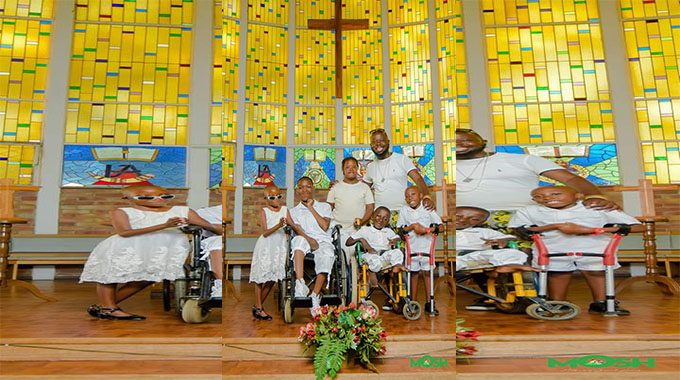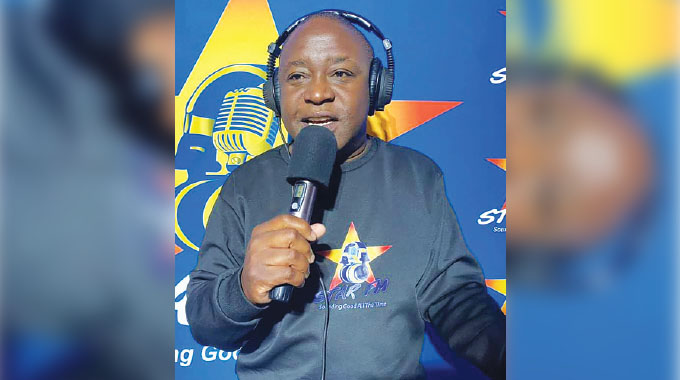Is this the end of Macheso ?

Whatever Alick does in his private life is strictly his business.
All Alick needs to be reminded of is that if he is keeping chickens at his house, they are not safe as long as his neighbours are hungry.
He must also be told that he should dance more and sleep less as carefree times will soon be a thing of the past. That is reality.
There will soon be a time when Alick is older, but still trying to do the Borrowdale dance, which, apart from his heart-stopping thumping bassline that could stop an elephant in its tracks, is his main attraction.
Fans will expect him to continue to do it and he will be forced to do it until he twists his ankle.
The fans will try to convince him that the twisted ankle is just a sprain, even though it looks black and blue. He will only stop when he realises that it is not a sprain, but a broken ankle.
That is when he will realise that he is not 21 years old anymore.
Of course, Macheso is a handsome man. One cannot take that away from him, but imagine, 20 years from now, at 62, when he becomes an ugly, bald, wrinkled, fat-arsed, grey haired and decrepit Macheso.
You will be saying to yourself, “Oh, what a transformation from the guy who used to do all those moves during the Orchestra Mberikwazvo hey-days!” So let us allow him to burn all the energy he has got while he is still able to do so.
The first time I saw Alick Macheso was when he was still a pimply pubescent teenager as a guitarist in the Khiama Boys.
This was at a night club which no longer exists. I went with a friend and we sat there for almost two hours waiting for the band to start playing.
Fearing that my friend might be bored by the waiting, I bought him many drinks which he accepted greedily. By the time the band came on stage, he was hammered and he started to dance frenetically.
I noticed also that he began to feel green about the gills. In no time at all, he had turned every drink I had bought him into a florid, explosive arc — onto my shirt, my trousers and my shoes.
His vomit came like a heavy rainfall. Rough as it was, this experience has vividly stuck in my memory to this day.
That was my first encounter with Alick Macheso. On stage, like he is today, he was footloose and fancy free. I knew that one day he will be big as he began to imitate the Michael Jackson moves such as ‘the Moonwalk’ and convert them to his own style.
Up to now, those moves can be said to be the secret of his success.
Alick Macheso, born in 1968 and better known as, ‘The King of Sungura and Borrowdale Dance’ says it was the music of the great Devera Ngwena Jazz Band that inspired him to take up the guitar.
The man started playing the guitar at the age of nine and everyone in the family did not understand why he was interested in making and playing the banjo.
Alick Macheso used to have problems with his grandmother when he started stealing twine strings from fishing rods to make his banjo.
Since he grew up on a farm in Bindura, there was not much fun for Macheso.
Apart from going to school, his only other source of entertainment became his banjo.
Alick Macheso could not however, continue with his studies as his father could not afford to pay the high school fees. It was on leaving school in 1983 that he decided to move to Harare, to look for employment.
Finding formal employment in Harare for someone without any Advanced Level educational qualifications became an almost impossible task. However, in 1984 things began to take shape when he joined Nicholas “Madzibaba” Zakaria to form the Khiama Boys.
With Khiama Boys, they released their debut single “Mabhauwa”. The song was an instant hit. Vocals for the song were done by the late System Tazvida. Other musicians who participated include Cephas Karushanga and Nicholas Zakaria.
Other early hit songs by the Khiama Boys included “Kubva Kure”, “Shamiso”, “Sekuru Ndibatsireiwo”, “Chionai Amai” and “Varume Woye.”
Khiama Boys went on to release their debut album “Kubva Kure” which was followed by equally good albums that included “Kuva Nemari”, “Mabvi Nemagokora” and “Zviri Mudzimba”.
Macheso decided to split from the Khiama Boys in the late 90s.
Assembling with the help of Bhundu Boys’ Rise Kagona, Orchestra Mberikwazvo, Alick set off a niche on the Zimbabwean Music scene.
Although his first two albums, “Magariro” in 1998 and “Vakiridzo” in 1999 were not phenomenal, the third album, “Simbaradzo”, released in 2000, proved to be a gold mine.
“Simbaradzo” sold 350 000 copies, breaking records for album sales in Zimbabwe.
Additionally, the album shot Macheso to stardom throughout Zimbabwe. “Simbaradzo” was to be the turning point in his career.
His trademark bass-strumming technique, along with his flamboyant “Borrowdale dance” gave Alick attention from all corners of the music industry.
His follow up to “Simbaradzo” entitled “Zvakanaka Zvakadaro” in 2001 was also a success, reportedly selling 100 000 copies in its first week alone.
In 2003, another album, “Zvido Zvenyu Kunyanya”, was an instant hit and two years later, a follow up album, “Vapupuri Pupurai” catapulted Macheso onto the international map.
Performances outside Zimbabwe have included the Southern African Summer Sunsplash Festival held in London, England.
Macheso’s music is also popular in neighbouring Mozambique and they have held successful tours there.
Alick Macheso also played alongside Papa Wemba during the Francophone Week in March 2001.
Alick Macheso owes his bass guitar playing and song-writing prowess to a number of great musicians with whom he played with in the past.
They include Nicholas Zacharia, Shepherd Chinyani, Tineyi Chikupo and Cephas Karushanga.
Macheso won his first award in 1999 at the Tinotenda Siyabonga Annual Musical Awards (TSAMA) for the Best Upcoming artiste.
The second award came in year 2000 for the Best Sungura Artiste category.
The NAMA awards in the same category also followed in the years 2003, 2004 and 2005.
Today, Macheso is a force to reckon with.
He has been phenomenal and has appeared as support act for international stars such as Sizzla in April this year where he did the Jamaican rap with ease, and Akon/Sean Paul in September.
This is certainly not the end of Macheso, but will his legacy continue in his 60s?
Fred Zindi is a Professor at the University of Zimbabwe. He is also a musician and an author of several books on music. He can be contacted via e-mail on [email protected]









Comments